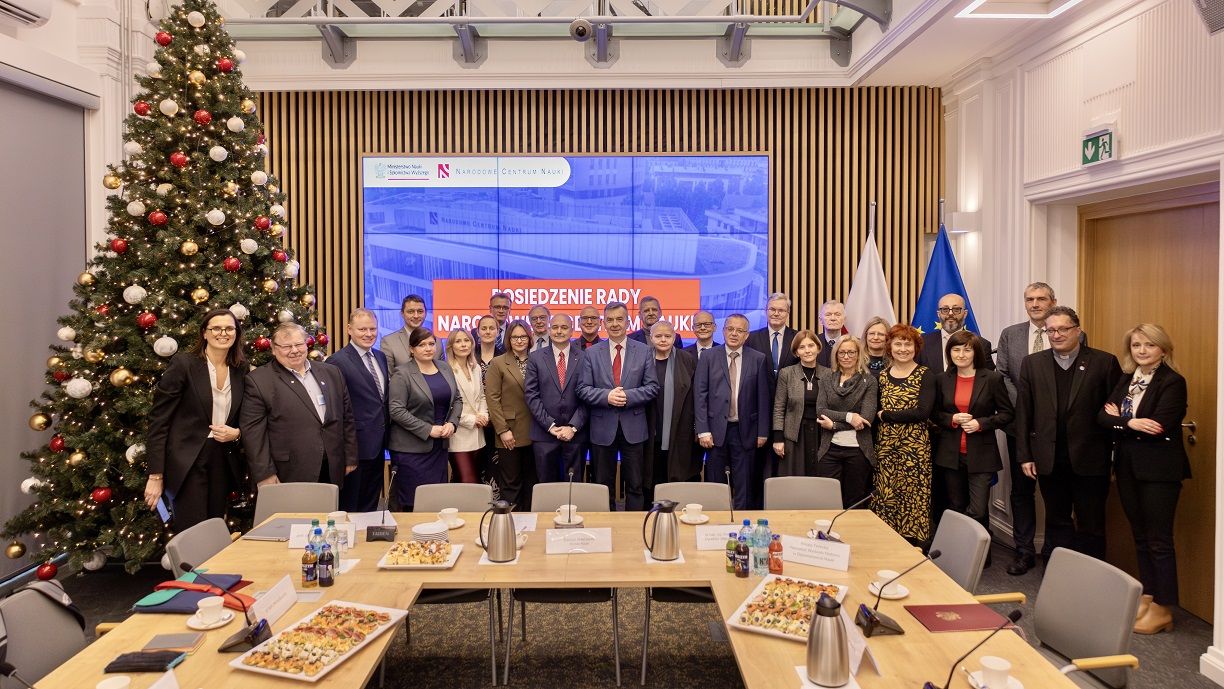Dariusz Wieczorek, Minister of Science appointed twelve new members to the NCN Council. The official nomination ceremony was held in Warsaw, on 20 December 2024. On the same day, the first meeting was held, during which Prof. Tomasz Dietl was appointed as the new President.
Prof. Tomasz Dietl is a physicist whose current research interests are focused on the development of material systems and device concepts for nanospintronics of topological insulators, ferromagnetic and antiferromagnetic semiconductors, and of hybrid metal/semiconductor nanostructures.
Prof. Dietl is a member of, inter alia, the Polish Academy of Sciences, Polish Academy of Arts and Sciences, and Academia Europea. He is a former member of the Scientific Council and Steering Committee of the European Research Council (ERC).
The Council formed its Committee of Appeals with Prof. Mariola Łaguna acting as its Head.

Following his appointment, Prof. Dietl was asked about his priorities for the coming years, to which he replied that he would strive to lead the Council in such a way as to ensure that NCN is indeed “oxygen for science” and fulfils the expectations of the scientific community, which had strongly supported its efforts to have its research budget increased.
“The NCN Council will continue its efforts to fund scientific excellence in Poland, seek out islands of excellence across various academic institutions, including smaller ones, and foster academic excellence where it has been absent. The NCN will continue to uphold the principle of equal opportunity for grant allocation, irrespective of age, gender, workplace or nationality,” he added.
Prof. Dietl highlighted that the National Science Centre represents the entire scientific community, which is one of its major strengths. Discipline coordinators, the Director and the Council are representatives of the scientific community and their ongoing engagement with that community is guaranteed by the system of term rotations. Another strong point is NCN’s independence from temporary influences, such as political ones,” he said.
Prof. Dietl emphasised that the National Science Centre will collaborate with other research agencies, such as the National Centre for Research and Development (NCBR), Polish National Agency for Academic Exchange (NAWA) and Medical Research Agency (ABM), in the implementation of joint programmes and the dissemination of best practices in the evaluation of research projects. The NCN will also strive to serve as the lead agency in European and bilateral projects.
“Furthermore, we recognise that the global situation requires us to pay close attention to defence and security. There has been talk that perhaps 1% of defence budget could be directed towards research-based solutions. Such funding could exceed the current level of NCN budget,” he stated.
“I believe that project writing and evaluation will soon be revolutionised thanks to AI developments. We may collaborate with Science Europe and the Global Research Council to develop new project evaluation methods that incorporate these new tools.”
The President highlighted the COARA principles and open access to publications among other matters slated for consideration by the Council.
